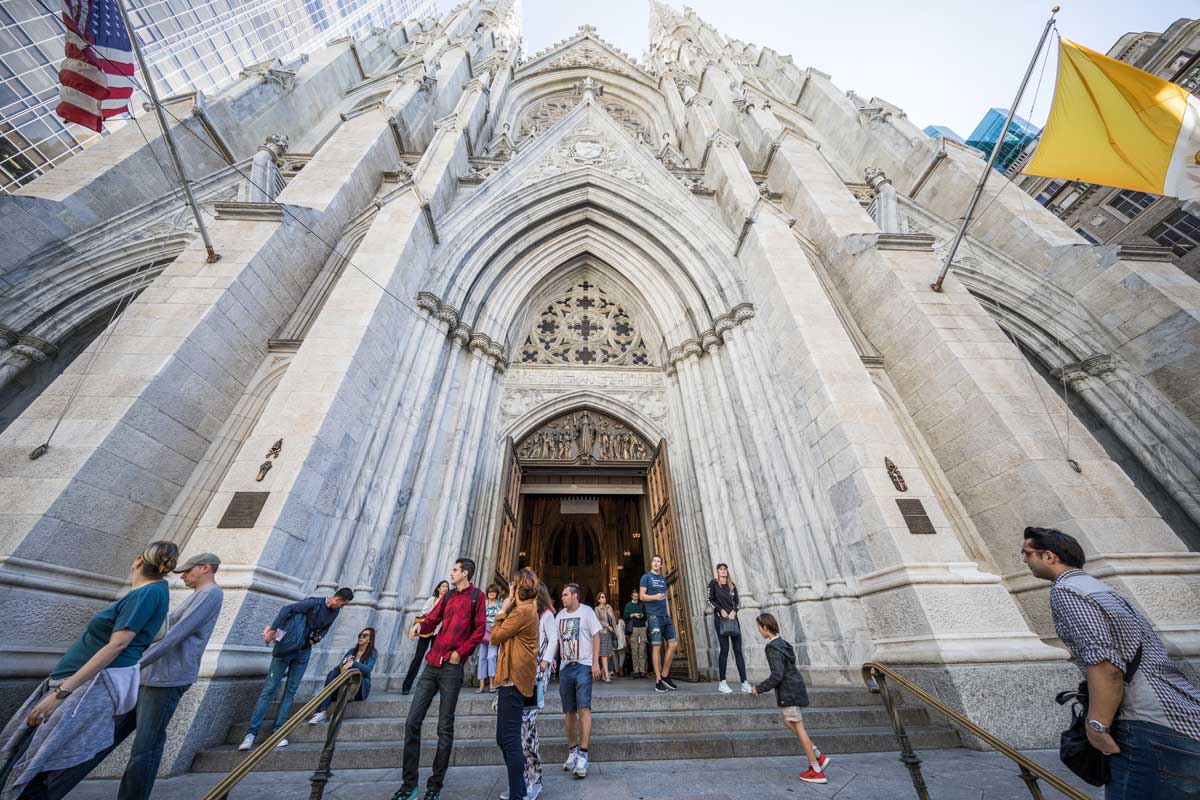Witnesses of the Passion
The Early Church’s Martyrs—A Tough but Necessary Act to Follow
by Kenneth D. Whitehead
In A.D. 177, in Lyons, a prosperous city in Roman Gaul located at the head of the navigable portion of the Rhone river, and in the nearby town of Vienne, a sizable number of Christians were arrested and thrown into prison, and subsequently savagely martyred—apparently, at first, simply for being Christians. Their persecution was typical of those periodically set in motion against the Christians in the ancient Roman Empire. From the time of the persecution launched by the Emperor Nero in the sixties of the first century A.D., the simple condition of being a Christian was periodically brought forward as ipso facto proof of crime.
Nero himself had accused the Christians of being responsible for the great fire that broke out in Rome during his reign, but it has long been thought that he accused them, at least in part, to deflect suspicion from himself. The Roman historian Tacitus wrote in his Annals that Christians dressed in animal skins “were torn to death by dogs or attached to crosses or, at nightfall, lit as living torches. Nero lent his garden for this spectacle, and there gave circus games, mixing with the crowd disguised as a groom or riding on a chariot.” According to Christian tradition, the apostles Peter and Paul perished in this Neronian persecution; Paul was beheaded, and Peter was crucified upside down.
The state did not always pursue or actively proceed against the Christians, nor was it always consistent in the measures it did take against them. But the state always could proceed against them, and sometimes it did so with a vengeance.
On these occasions, various requirements were often imposed, such as burning incense as a sign of religious worship of the emperor. It was known that true Christians would refuse to do such things; hence, they could be convicted and punished for their refusal itself. On other occasions, little or no attempt was made to establish rules that the Christians would then be obliged by their faith to break; they were made to suffer simply and solely because they were Christians.
Earlier in the second century, in fact, around A.D. 111, Pliny the Younger, while serving as Roman governor of the province of Bithynia in Asia Minor, wrote a letter to the Roman emperor Trajan seeking guidance about how he was to deal with what he called a “contagion of . . . superstition.” He was referring to Christianity. According to Pliny, it had “penetrated not only the cities, but also the villages and country places,” in some areas causing the pagan temples to be “deserted” and “long disused.” At first he had condemned Christians to be executed merely if they had confessed to being Christians and had refused to recant after they had been warned. “Whatever it was they admitted,” Pliny wrote, “obstinacy and unbending perversity certainly deserve to be punished.”
However, he became aware that some of the local citizens were trying to get even with their personal enemies simply by accusing them of being Christians. Pliny realized that a more exact and vigorous standard was required of precisely what constituted the “crime” of being a Christian. That was why he wrote to the emperor for guidance.
Trajan was not able to provide him with guidance that was either logical or consistent. “Nothing can be laid down as a general law which contains anything like a definite rule of action,” the emperor wrote. Christians “are not to be sought out. If they are accused and convicted, they are to be punished.” However, they could easily save themselves, by offering acts of worship to the pagan gods. The emperor also ruled out anonymous denunciations.
Apologists such as St. Justin the Martyr tried to point out the injustice inherent in the policy, indeed, the patent absurdity of punishing so severely “criminals” whom the state did not otherwise think it worthwhile to seek out or apprehend. “If one of the accused denies the charge,” St. Justin wrote in his First Apology, “you dismiss him, as having no proof of misconduct against him; but if he confesses . . . you punish him because of his confession.” Inconsistent as this policy of Trajan’s was, it remained the policy of the Roman Empire towards the Christians for more than a century, and was still operative when the persecution broke out in Lyons.
Lyons’ Heroes
Kenneth D. Whitehead is the 2004 recipient of the Blessed Frederic Ozanam Award for Catholic Social Action of the Society of Catholic Social Scientists (SCSS). He writes frequently on Catholic social and moral issues.
subscription options
Order
Print/Online Subscription

Get six issues (one year) of Touchstone PLUS full online access including pdf downloads for only $39.95. That's only $3.34 per month!
Order
Online Only
Subscription

Get a one-year full-access subscription to the Touchstone online archives for only $19.95. That's only $1.66 per month!
bulk subscriptions
Order Touchstone subscriptions in bulk and save $10 per sub! Each subscription includes 6 issues of Touchstone plus full online access to touchstonemag.com—including archives, videos, and pdf downloads of recent issues for only $29.95 each! Great for churches or study groups.
Transactions will be processed on a secure server.
more on martyrdom from the online archives
more from the online archives

37.5—Sept/Oct 2024
Why Law Schools Can't Teach Law
A sidebar to How Law Lost Its Way by Adam MacLeod
calling all readers
Please Donate
"There are magazines worth reading but few worth saving . . . Touchstone is just such a magazine."
—Alice von Hildebrand
"Here we do not concede one square millimeter of territory to falsehood, folly, contemporary sentimentality, or fashion. We speak the truth, and let God be our judge. . . . Touchstone is the one committedly Christian conservative journal."
—Anthony Esolen, Touchstone senior editor









